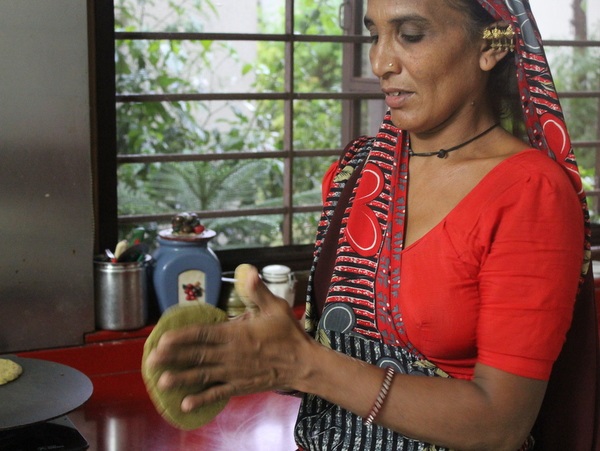A reader pens down her thoughts about a generation that marks happiness by its bank balance, not its personal ties.
 by Vidya Rekha
by Vidya Rekha
Looking through the window, a thought popped into my mind one day…Why does the younger generation not take responsibility? Responsibility at the job, in their personal lives, with their parents? We are always taught to be responsible, to always emanate the spiritual thoughts within us. But I increasingly see that the younger generation doesn’t want to be inside the boundary of responsibility – within the bounds of marriage, within the bounds of authority.
Youngsters today want to be autonomous in their thoughts and actions. Ostensibly they want to be with someone who can share the same conception as theirs and enjoy the colours of life without binding to any obligation. While this sounds attraction on the surface, it comes with its own pitfalls. Not everyone is able to comprehend this style of living and thinking. Soon, marriages lead to divorce. Personal relationships break down. It is disturbing to see so many newlyweds separate before they celebrate their first wedding anniversary.
At the root of most of these troubles is money. Most women today are financially empowered, they are accomplished in their careers. So they think, ‘I have no need to obey a man’. Likewise, men think that when they earn and take care of their families, their responsibilities do not include listening to or taking advice from a woman. They simply presume that girls should be meek to them, regardless of their employment.
Many girls today easily agree to get married to a man working overseas, under the false impression that they will get a queenly lifestyle abroad. Once they actually reach there, they realise that living in comfort abroad requires hours of work. Most women fail to remember their own parents’ initial struggles to raise a family and run the house. It is also disturbing to see how many people are unhappy about attending to the brood waiting for them back home, and more so, about taking care of their parents.
Simultaneously, the bone of contention between many couples is: Why should I take care of your parents? Meanwhile, more and more couples are increasingly opting to live in with their partners, since this arrangement does not come with the complications of marriage.
But this kind of autonomy, both in marriages and live-in relationships, can come with a price. There is no substitute for the guidance and wisdom of elders in our lives.
Life is all about giving and gaining. The full form of the word ‘Ego’ currently is ‘Edging God Out.’ This means we have no time or inclination for introspection, that we are completely devoted to our own interests. We will soon become people who are selfish, concerned only for our own welfare, whose God is money and material comfort.
Instead of money guiding our choices, it should be our higher self doing so. If the choice we make brings us a sense of peace, then that is our higher self at work.
Vidya Rekha is a graduate from Mysore University, and works as HR professional for the JGI group. She loves reading books and listening to music. The views expressed here are her own.
(Picture courtesy www.moneycrashers.com. Image is used for representational purpose only)










